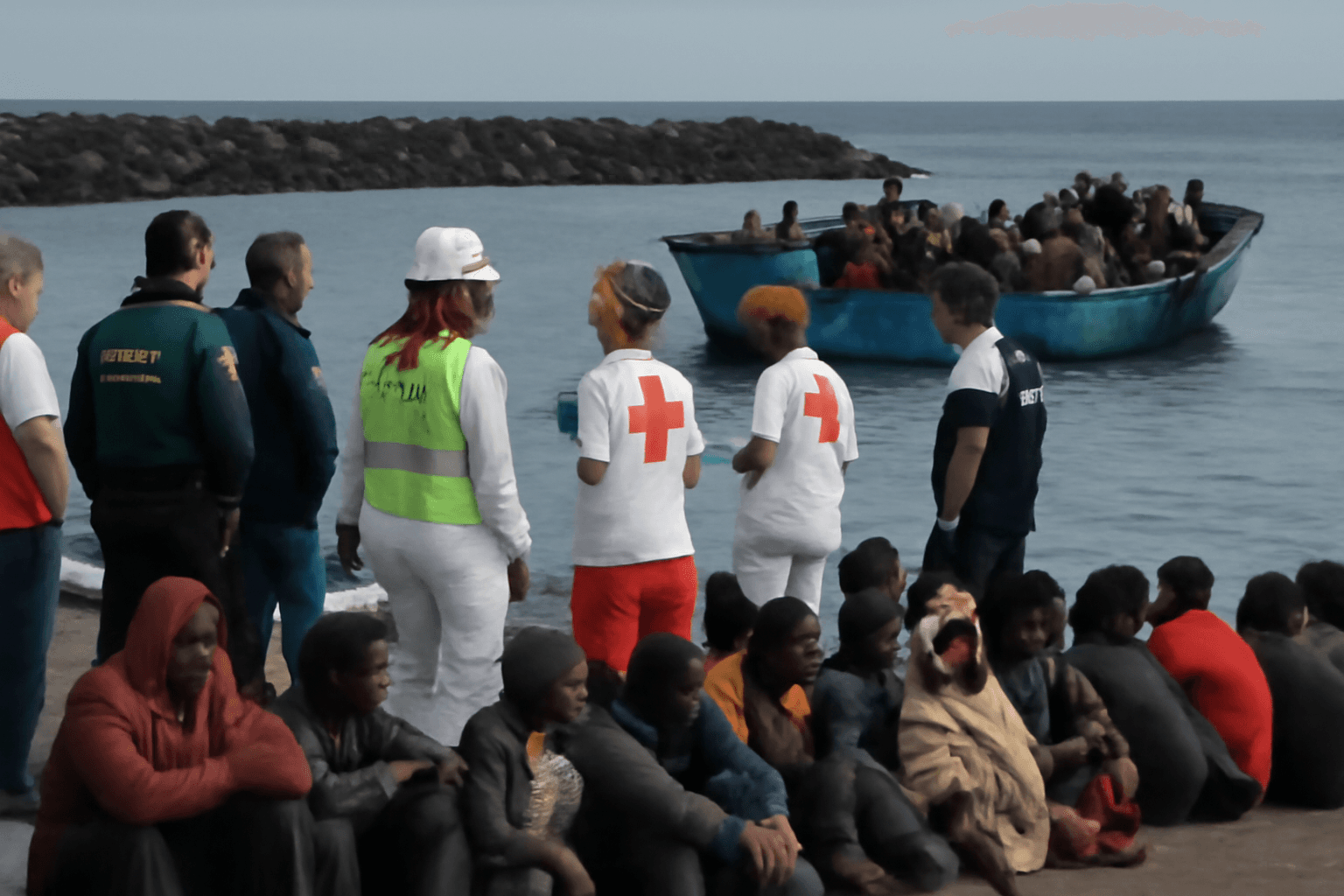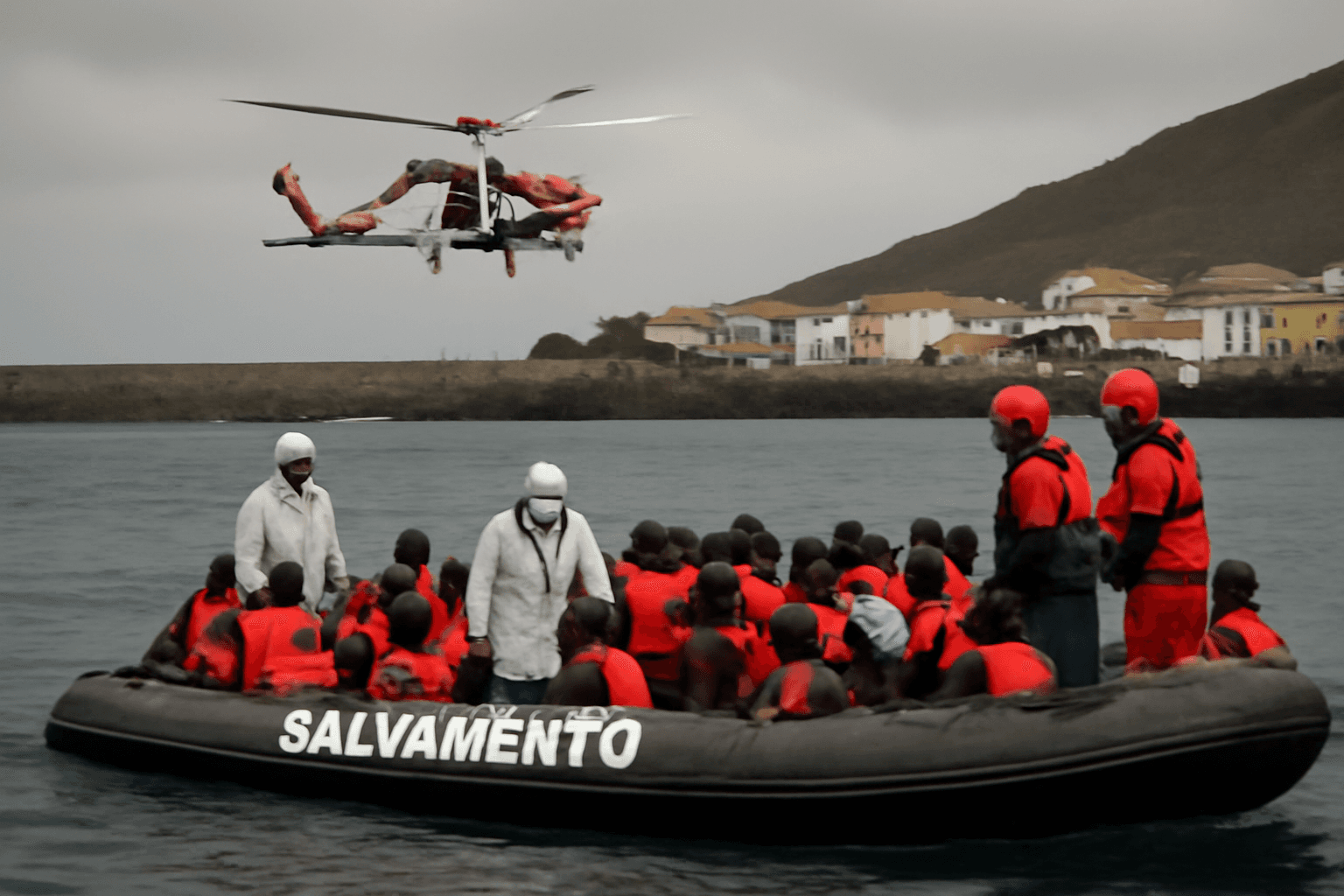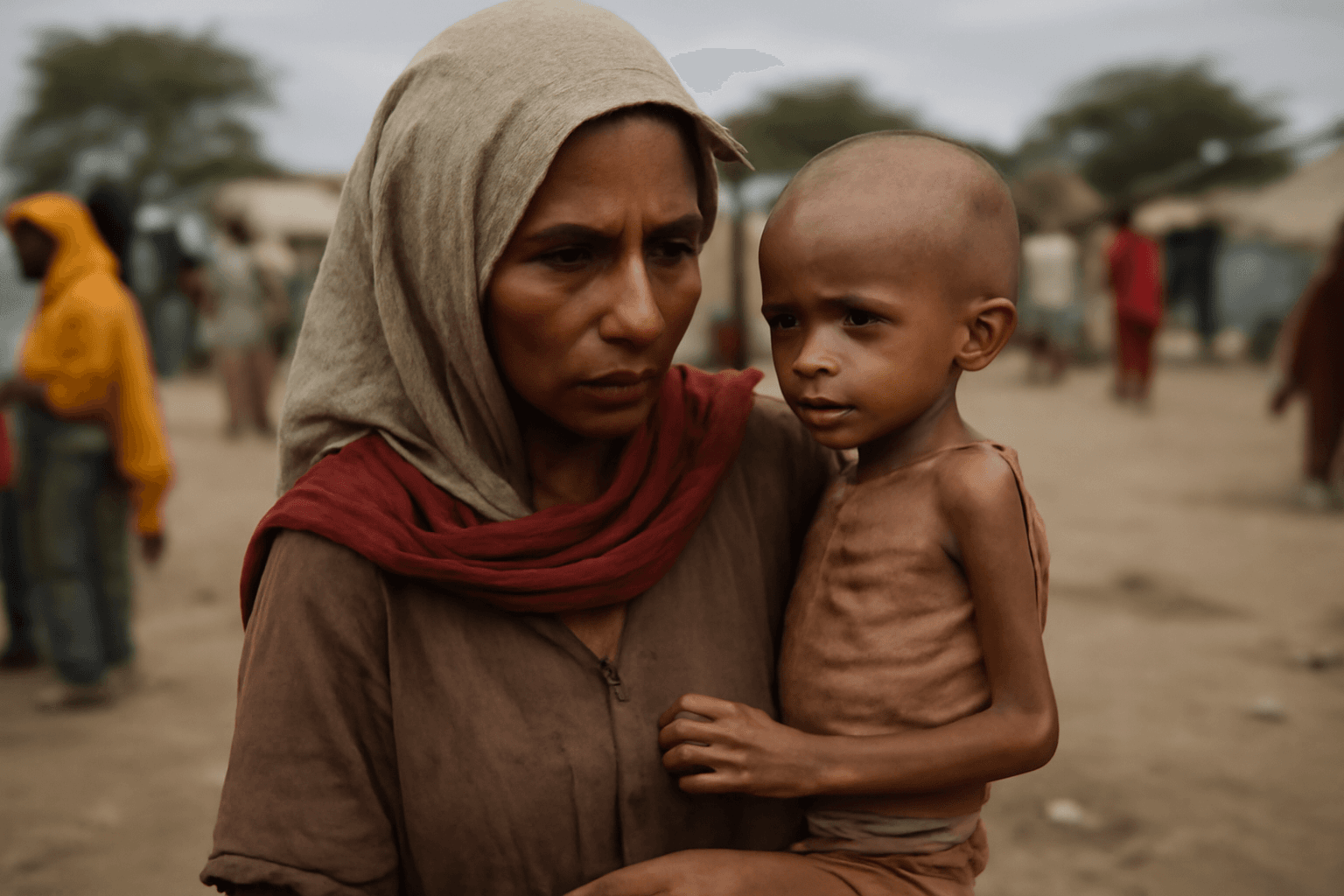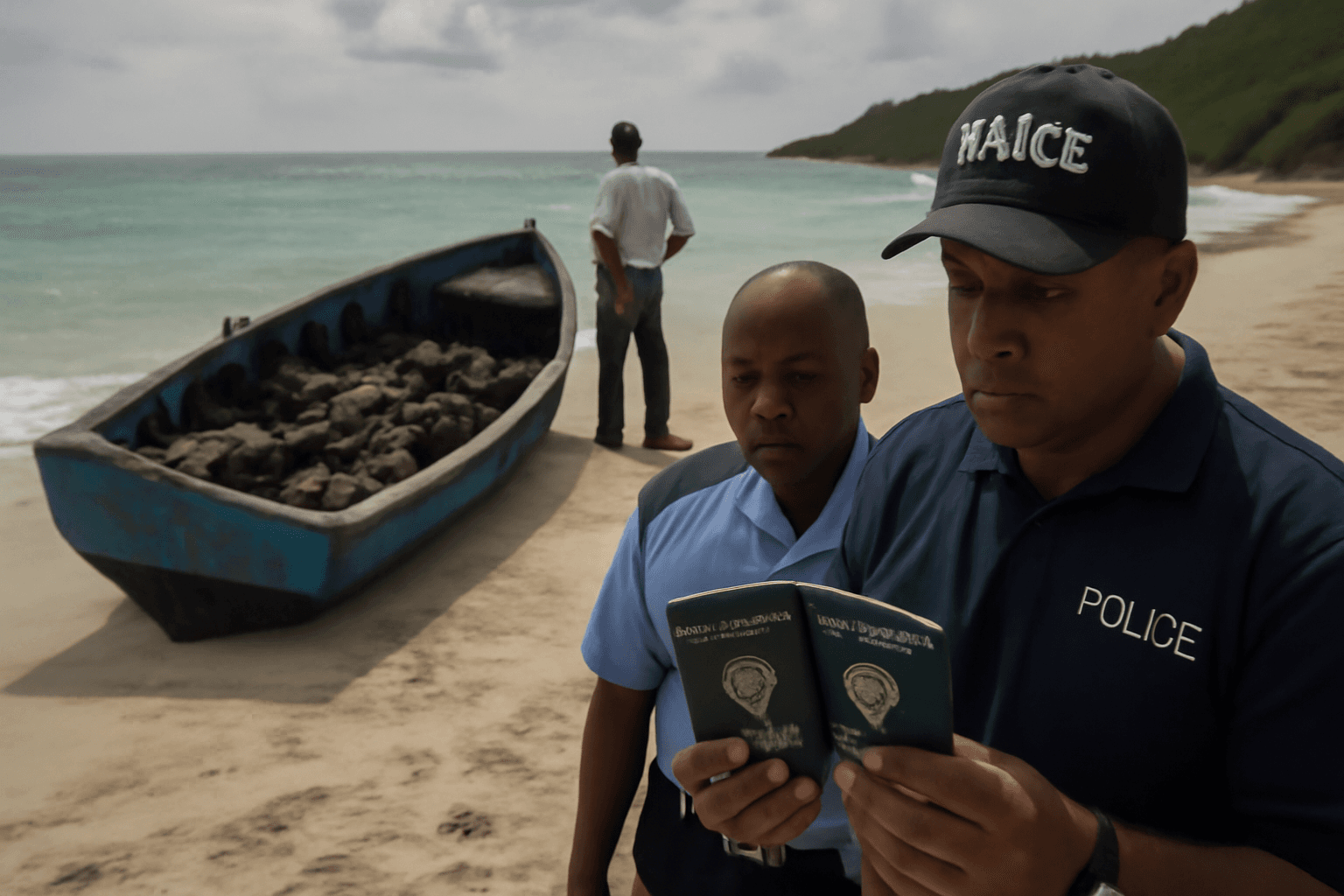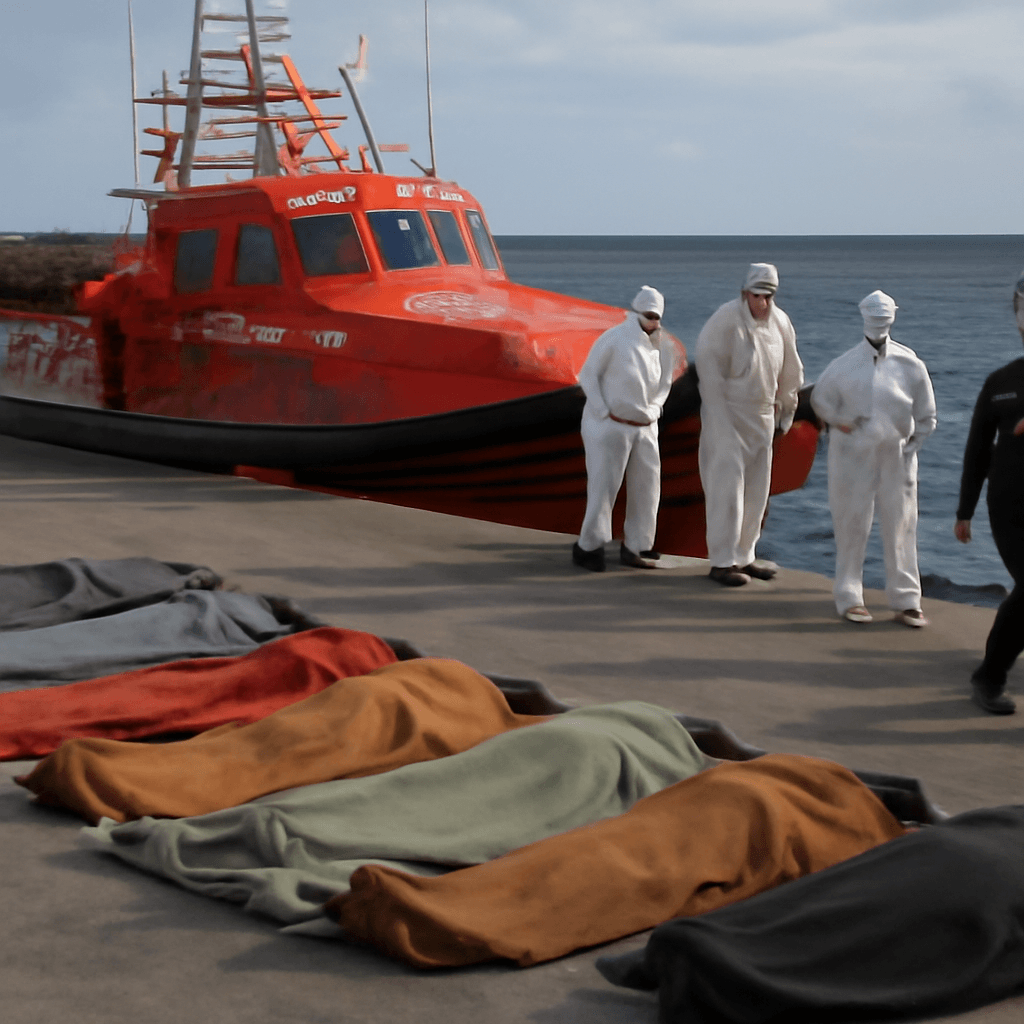Four women and three girls tragically lost their lives on Wednesday after an overcrowded migrant boat capsized during disembarkation at La Restinga port on El Hierro, one of Spain's Canary Islands, authorities confirmed.
Spain's maritime rescue service located the vessel approximately six nautical miles from shore. The boat was carrying 159 people, including 49 women and 32 minors. The identities and nationalities of those on board remain unclear.
Emergency services reported that among the deceased were girls aged five and sixteen. Additionally, a three-year-old boy and a five-year-old girl nearly drowned and were airlifted to a hospital in Tenerife, the largest Canary Island. Two three-month-old infants, a pregnant woman, and three other minors were being treated at a hospital on El Hierro.
Local officials described the situation as devastating. Juan Miguel Padron, mayor of El Pinar near La Restinga, noted some migrants were still trapped in the boat at the time it capsized during rescue efforts. The maritime rescue service explained that during disembarkation, passengers crowding one side caused the vessel to tilt and overturn. This moment is considered the most precarious during rescue operations, particularly given the overcrowded conditions and often unsafe vessels used for these crossings.
Alpidio Armas, head of El Hierro's local government, expressed concern about how migrants can survive perilous sea crossings only to perish upon reaching port. He emphasized the need to reassess current rescue and reception processes.
Each year, tens of thousands of migrants attempt the dangerous journey from West Africa to Europe via the Canary Islands, with Mali, Senegal, and Morocco being common countries of origin. Strong ocean currents and inadequate boats contribute to the high risk of fatal incidents.
The NGO Caminando Fronteras reported that over 10,000 migrants died or disappeared attempting sea crossings to Spain during 2024 alone. The Canary Islands, experiencing record migrant arrivals, have repeatedly called for greater European Union support, citing overwhelmed local resources and insufficient solidarity measures.
Prime Minister Pedro Sanchez reflected on the tragedy via social media, urging collective compassion for those risking perilous journeys in search of better futures.
Despite nearly 47,000 irregular arrivals recorded in 2024—setting consecutive annual records—arrivals have declined by over 34% in the early months of 2025. Authorities continue to monitor migration patterns closely amid ongoing challenges.

